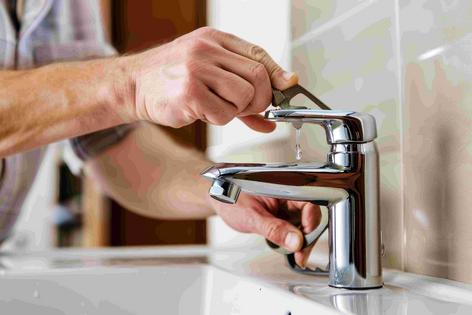Home Plumbing Project Tips Every Homeowner Should Know
Published in Home Articles
Tackling home plumbing projects may seem intimidating at first, but with a little know-how, you can handle many plumbing tasks without calling a professional. Whether you're fixing a leaky faucet or installing a new toilet, understanding some basic principles can make a huge difference.
Here are essential tips every homeowner should know to make your plumbing projects a breeze.
Know Your Water Shut-Off Valve
One of the first things you should learn about your home is where at-home water shut-off valve is. This mainly controls the water flow to your entire house, and knowing where it is can save you from serious water damage in case of a plumbing emergency. Whether you’re replacing a fixture or dealing with a burst pipe, shutting off the water is your first line of defense.
Before starting any plumbing project, turn off the water supply to the affected area. In most cases, you can shut off the water to individual fixtures, but in some situations, like major repairs, you may need to turn off the main valve. Make sure everyone in your household knows its location in case of an emergency.
Know When To Contact A Plumbing Professional
Remember: not every project is a good fit for a do-it-yourself approach. For example, if you’re dealing with major plumbing issues like pipe replacements, sewer line backups, or gas lines, it’s best to call in a home plumbing system professional. And if you're located in Olathe, KS or any other nearby area and want to work with an experienced and trustworthy plumber, the team at A-1 Sewer offers professional service and reasonable prices.
Even with smaller jobs, if you’re unsure of what you’re doing or encounter an unexpected problem, don’t hesitate to seek expert help. It’s better to spend a little on professional assistance than to risk causing significant damage that could lead to costly repairs.
Keep The Right Plumbing Tools Onhand
Having the right tools is essential for any home plumbing project. A well-stocked toolbox should include essentials like a pipe wrench, adjustable pliers, a plumber’s snake, and a plunger. A basin wrench is particularly useful for hard-to-reach places under sinks.
Even simple tasks like fixing a leaky faucet or unclogging a drain require the proper tools. Using the wrong tools can damage pipes, fixtures, and fittings, which could result in bigger problems. Invest in quality plumbing tools, as they'll pay off in the long run by helping you avoid costly repairs.
Prevent Clogged Drains With Regular Upkeep
Clogged drains are a common problem, but they’re also preventable with a bit of maintenance. Avoid pouring grease, coffee grounds, or food scraps down the kitchen sink, as these materials tend to solidify and create blockages. In the bathroom, hair is the number one cause of clogs, so use a drain screen to catch it before it goes down the drain.
Regularly flush your drains with a mixture of baking soda and vinegar followed by hot water to keep them clear. This simple, natural solution is effective and environmentally friendly. By taking proactive steps, you can avoid the frustration of slow drains and prevent more serious issues.
Don't Ignore Small Leaks
A small drip might not seem like a big deal, but over time, even minor leaks can lead to significant water damage and expensive repairs. Always address leaks as soon as you notice them, whether it’s a dripping faucet, a leaky showerhead, or a small pipe leak.
Check your plumbing fixtures regularly for signs of leaks. Be mindful of any changes in water pressure, unusual noises in your pipes, or damp spots on your walls and ceilings. Catching problems early can save you a lot of trouble in the long run.
Utilize The Right Type Of Sealant
Not all plumbing projects require the same type of sealant. Plumber’s putty is commonly used around faucets and drains to prevent water from seeping through, while silicone sealant works well for sealing joints around bathtubs and sinks. Make sure you’re using the correct sealant for the task at hand, as this will ensure the best results and help you avoid water damage in the future.
Insulate Pipes To Prevent Freezing
If you live in an area with cold winters, frozen pipes can be a major concern. Insulating your pipes is a simple but effective way to prevent them from freezing and bursting. Focus on pipes located in unheated areas, such as basements, crawl spaces, and garages, as these are most at risk.
Use pipe insulation or heat tape to keep the pipes warm during colder months. Preventing frozen pipes can save you from dealing with expensive repairs and water damage during the winter season.
Final Words
Taking on home plumbing projects can seem overwhelming at first, but with the right knowledge and tools, you can tackle many common issues on your own. By following these tips, you’ll not only save money but also keep your plumbing system in great shape.






























Comments